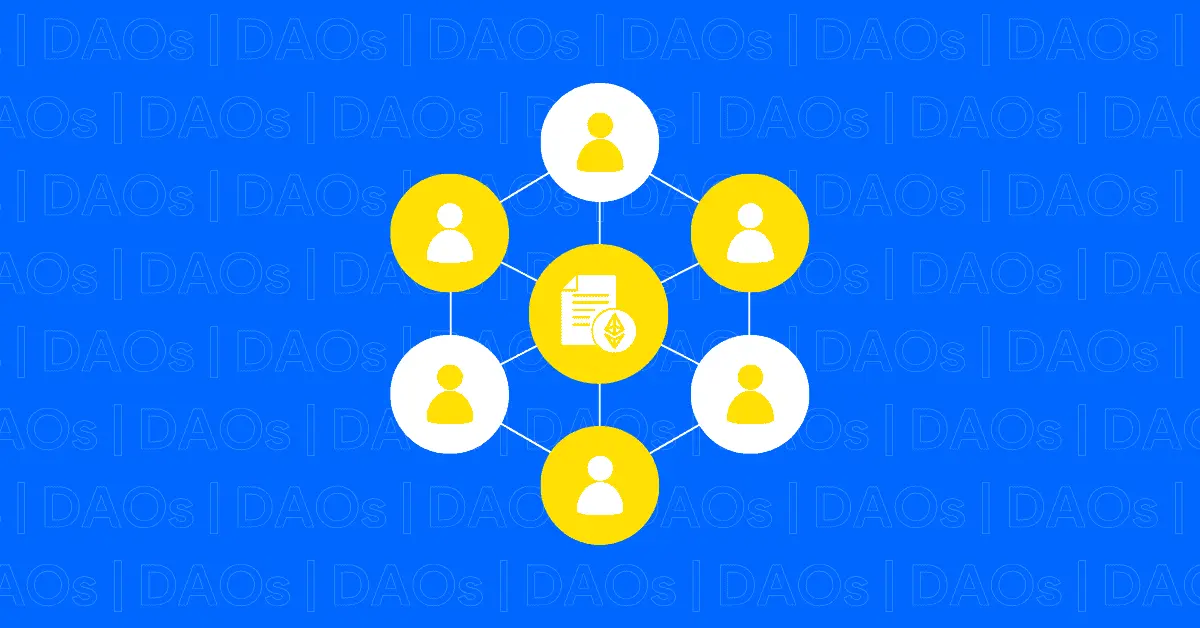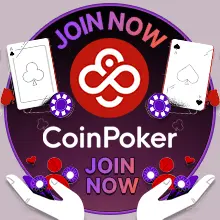
Ever wondered what it would be like to be part of a global decision-making group where everyone has an equal say? What if traditional power structures could be flipped upside down, letting the community call the shots?
Let’s imagine this: You and a group of friends decide to start a lemonade stand. But instead of one person calling the shots, everyone gets a say. You vote on where to buy lemons, how much to charge, and even how to split the profits.
Now, take that idea, remove the lemonade, put it on the internet, and add some blockchain magic—this is how a DAO works.
Yes, a DAO—Decentralized Autonomous Organization. Stick with us as we break down how this exciting new model works and why it’s more relevant than ever in our interconnected, decentralized world. Ready to dive in? Let’s go!
Let’s Start with the Basics: What Does DAO Signify?
A DAO (Decentralized Autonomous Organization) operates like a digital cooperative. It’s an organization that runs itself using smart contracts—self-executing computer programs that follow the rules established by the group.
DAOs exist on the blockchain, ensuring transparency and security. They are largely tamper-proof, thanks to blockchain technology.
Unlike traditional companies with CEOs and managers, DAOs are governed by their members. How are decisions made? Collectively. Want to make a change? Propose it, and if enough members vote for it, it happens. No middlemen, no boss calling the shots.
Why Should DAOs Matter to You?
You might be thinking, “That’s interesting, but why should I care?” Here’s why:
DAOs are challenging our traditional view of organizations. They’re democratic, global, and driven by technology rather than bureaucracy. Whether you’re into cryptocurrency, social causes, or just want to be part of a forward-thinking group, DAOs have something to offer.
Imagine being part of a team building a new video game. Instead of a corporation deciding which features to include, the players vote on it. Or picture a charity where every dollar spent is visible on the blockchain. DAOs make all this possible.
How Do DAOs Work?
Let’s dive into the mechanics (but don’t worry, we’ll keep it simple).
Smart Contracts:
Smart contracts are the backbone of any DAO. Think of them as digital rulebooks. If you’ve ever set up an automatic bill payment, you’ve experienced something similar. These contracts execute actions automatically when certain conditions are met.
Tokens:
Most DAOs have their own cryptocurrency or token. Think of these as membership cards. Owning tokens usually gives you voting power, similar to shares in a company. The more tokens you hold, the bigger your voice.
Proposals and Voting:
Want to suggest a change? Submit a proposal. Members vote on it, and the smart contract ensures that the majority decision is automatically implemented. It’s that straightforward.
To make things clearer, let’s look at an example: Uniswap, a decentralized exchange. Uniswap is governed by a DAO, where token holders vote on important decisions like upgrades, fee adjustments, and new features. There’s no corporate boardroom involved—community members are in charge.
The Good Stuff: Why DAOs Are Awesome
1. Decentralization Means Power to the People
In a DAO, there’s no central authority. Decisions aren’t made in secret boardrooms—they happen out in the open, with every member having a voice. It’s democracy, designed for the digital era.
2. Transparency
Since DAOs operate on the blockchain, everything is visible. Where’s the money going? Who voted for what? It’s all there for anyone to see. No hidden agendas or backroom deals.
3. Global Access
DAOs don’t discriminate based on location. As long as you have an internet connection and tokens, you’re in. This global reach makes DAOs incredibly inclusive.
4. Automation
Smart contracts handle tedious tasks, like managing funds or executing decisions. No more waiting weeks for approvals or getting bogged down in paperwork.
The Not-So-Good Stuff: Challenges of DAOs
While DAOs are innovative, they do have their flaws. Let’s be honest—nothing’s perfect.
1. Voting Fatigue
Imagine getting 20 emails a day asking you to vote on every little thing. Sounds exhausting, right? Some DAO members experience this. It’s called voting fatigue.
2. Whale Problems
In some DAOs, those with large token holdings (whales) hold more voting power. This imbalance can lead to the wealthy gaining even more influence, often drowning out smaller members.
3. Code is Law… Until It’s Not
Smart contracts are only as reliable as the code they’re built on. If there’s a flaw in the code, it can be exploited. Take the infamous DAO hack of 2016, where $60 million worth of Ether was stolen due to a vulnerability in the code. A painful lesson in the limits of code security.
Famous DAOs You Should Know About
MakerDAO:
They’re behind DAI, a stablecoin pegged to the US dollar. Members govern how the stablecoin works, including interest rates and collateral requirements.
ConstitutionDAO:
This DAO raised over $40 million to try and buy a rare copy of the U.S. Constitution. They didn’t win the auction, but it showed how quickly people can come together for a cause.
Friends With Benefits (FWB):
Think of this as a social club for creators and tech enthusiasts. Members pay in crypto to join, and they get access to exclusive events and projects.
Also Read: What is DeFi and How Does It Work? Exploring the Future of Finance
How to Join a DAO?
Ready to dive in? Here’s how you can get started:
- Research: Find a DAO that aligns with your interests. Whether it’s art, finance, or social causes, there’s likely a DAO that suits you.
- Get Tokens: Most DAOs require you to hold their native tokens. You can typically buy these tokens on a cryptocurrency exchange.
- Participate: Join the community by getting involved in their Discord or Telegram groups. Read through proposals, cast your votes, and share your ideas. The more actively you participate, the greater your influence.
Are DAOs the Future?
It’s hard to say, but DAOs are definitely onto something. They’re changing how we think about governance, collaboration, and ownership. While they’re not perfect, they offer a glimpse into a more decentralized and democratic future.
Think about it: What if schools, charities, or even governments could adopt DAO-like structures? No more red tape, no more corruption—just communities working together for a common goal.
So, What’s Next?
So, there you have it. DAOs might sound like something out of a sci-fi movie, but they’re very real and already making waves.
DAOs are redefining how we think about organizations and decision-making, offering a more inclusive, transparent, and decentralized future. While they come with their challenges, the potential for innovation and collaboration is undeniable.
Who knows? You might even start your own DAO one day. Maybe a digital lemonade stand where everyone votes on the flavor of the day. Sounds refreshing, doesn’t it?
A DAO (Decentralized Autonomous Organization) is a blockchain-based group managed by smart contracts, enabling transparent, democratic decision-making.
DAOs operate using smart contracts for governance and decisions, with members voting via tokens to implement proposals automatically.
DAOs offer decentralization, transparency, global participation, and automation, empowering members to manage and govern collectively.
Uniswap is a DAO where token holders vote on platform upgrades and policies, eliminating centralized control.
We'd Love to Hear Your Thoughts on This Article!
Was this writing helpful?
 Yes
Yes  No
No
Trust with CoinPedia:
CoinPedia has been delivering accurate and timely cryptocurrency and blockchain updates since 2017. All content is created by our expert panel of analysts and journalists, following strict Editorial Guidelines based on E-E-A-T (Experience, Expertise, Authoritativeness, Trustworthiness). Every article is fact-checked against reputable sources to ensure accuracy, transparency, and reliability. Our review policy guarantees unbiased evaluations when recommending exchanges, platforms, or tools. We strive to provide timely updates about everything crypto & blockchain, right from startups to industry majors.
Investment Disclaimer:
All opinions and insights shared represent the author's own views on current market conditions. Please do your own research before making investment decisions. Neither the writer nor the publication assumes responsibility for your financial choices.
Sponsored and Advertisements:
Sponsored content and affiliate links may appear on our site. Advertisements are marked clearly, and our editorial content remains entirely independent from our ad partners.




